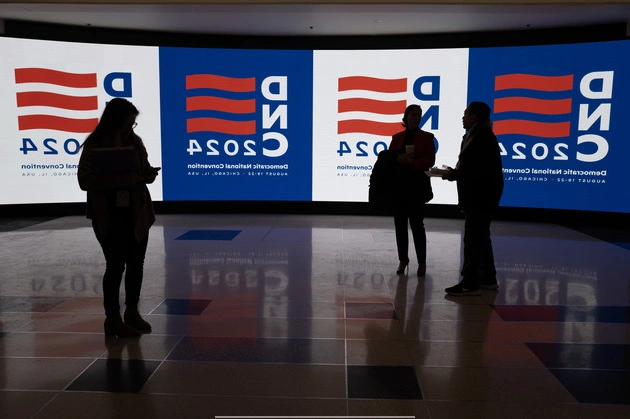
As Joe Biden prepares to exit the White House, marking the end of his tenure as the second Catholic president, the incoming administration of Donald Trump is poised to usher in a notable presence of Catholics within its ranks.
While Trump himself has shifted from his Presbyterian upbringing to a non-denominational stance, he has chosen over a dozen Catholics for key positions in his administration. Among them are JD Vance, a Catholic convert serving as his vice president, and Robert F. Kennedy Jr., nominated for Health and Human Services Secretary. The faith of these individuals is expected to influence policy decisions, ranging from pro-union initiatives and trade policies to family-oriented tax credits and increased regulations in the food and drug sectors. Moreover, this Catholic influence has the potential to reshape the trajectory of the Republican Party.
Conservative Catholic leaders have noted a convergence between Trump’s second-term policy agenda and the principles of Catholic social teaching, extending beyond issues like abortion to encompass aspects such as marriage promotion, parental rights in education and healthcare, and the empowerment of non-governmental entities for social welfare. This alignment signifies a departure from the more individualistic evangelical Protestant influence that has historically characterized the GOP, emphasizing individual liberty and free-market capitalism.
Rachel Bovard, from the Conservative Partnership Institute, emphasized the significance of this shift, stating, “The market exists to foster a free and thriving society, not as an end in itself. A healthy society hinges on strong families, necessitating public policies that prioritize family well-being.”
While Trump’s impact on the Republican Party has been transformative over the past decade, signaling a departure from the traditional conservative ideology shaped by Ronald Reagan, the current trajectory indicates a move towards a common-good conservatism. This model places less emphasis on individual rights and more on communal well-being, favoring pro-family policies over a purely pro-business stance.
The GOP’s pivot towards a more family-centric approach aligns with the challenges of income inequality and societal shifts that have made middle-class aspirations increasingly elusive. It also reflects a broader societal dialogue on gender dynamics, declining birth rates, and the pervasive influence of technology in daily life.
Key figures driving this ideological shift include JD Vance, whose Catholic convictions inform his policy perspectives. Vance’s advocacy for applying Catholic social teaching in economic policies underscores a departure from traditional GOP economics towards a more family-oriented focus, resonating with a broader reevaluation of issues like labor unions and trade policies.
The emphasis on incentivizing family creation through government interventions mirrors similar initiatives in European countries, albeit with varying degrees of success. Proposals like an expanded child tax credit and free in vitro fertilization aim to promote family values, although they may encounter resistance from certain quarters due to conflicts with established Catholic doctrines.
While progressive and conservative Catholics alike acknowledge the potential of these policies to reshape the GOP’s agenda, concerns linger regarding the party’s commitment amidst competing priorities. Skepticism remains regarding the administration’s stance on immigration and social provisions, with questions arising about the true priority accorded to family-centric policies in the broader political landscape.















